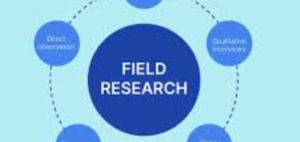In the realm of market research and product development, understanding the needs, preferences, and perceptions of your target audience is paramount. One of the most effective tools for gathering such insights is the focus group discussion (FGD). This method brings together a diverse group of individuals to engage in open and candid conversations about a particular topic, product, or service.
So, what makes focus group discussions so powerful?
First and foremost, FGDs offer a platform for rich qualitative data collection. Unlike surveys or questionnaires, which often yield quantitative data, focus groups delve into the nuances and complexities of human experience. Participants are encouraged to express their opinions, share anecdotes, and articulate their feelings, providing researchers with valuable context and depth of understanding.
Moreover, FGDs foster interaction and collaboration among participants. As individuals bounce ideas off one another, challenge assumptions, and offer diverse perspectives, new insights emerge. This dynamic exchange not only generates innovative ideas but also helps uncover hidden motivations and underlying attitudes.
Another key benefit of focus group discussions is their flexibility. Researchers have the freedom to adapt the discussion guide in real-time based on the direction the conversation takes. This agility allows for deeper exploration of specific topics or issues that may arise during the session, ensuring that no valuable insight goes unnoticed.
Furthermore, FGDs provide a holistic view of the target audience. By assembling a diverse group of participants representing various demographics, backgrounds, and experiences, researchers gain a comprehensive understanding of the market landscape. This diversity ensures that insights are inclusive and reflective of the broader population, minimizing the risk of bias and overlooking critical perspectives.
Additionally, focus group discussions can be conducted in various formats to suit different research objectives. Whether in-person, virtual, or hybrid, researchers have the flexibility to choose the most appropriate method based on logistical considerations and participant preferences. This adaptability ensures that FGDs remain accessible and effective across different contexts.
In conclusion, focus group discussions are a powerful tool for gathering qualitative insights, fostering collaboration, and gaining a holistic understanding of the target audience. By leveraging the dynamics of group interaction, researchers can uncover valuable insights that inform strategic decision-making and drive innovation. In an increasingly competitive marketplace, the ability to connect with consumers on a deeper level is invaluable, making focus group discussions an indispensable asset for businesses striving to stay ahead of the curve.









